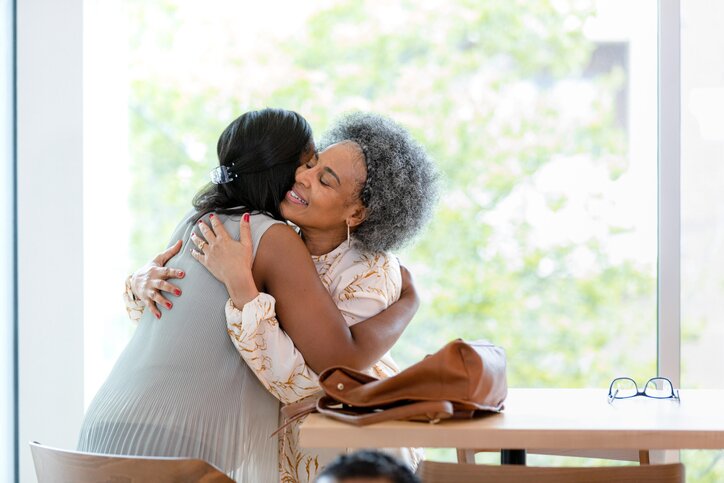Coping With Grief After Sudden Loss? Here are Seven Important Things to Know
Grief can engulf us when we least expect it, especially after the sudden loss of a loved one.
This kind of grief is uniquely intense, plunging us into a confusing world where everything feels unfamiliar. In these moments, it is important to remember that grief is the human response to loss. It is a natural cascade of emotions that unfolds differently for each person. If you are grappling with the sudden loss of a beloved family member or friend, please accept our deepest condolences.
Read on for compassionate guidance to aid you during this challenging time.

Confronting the Special Challenge of Unexpected Death
Sudden loss carries with it a complex, profound form of grief. It crashes into our lives without warning, triggered by accidents, medical emergencies, or unforeseeable circumstances. In an instant, life is forever changed and the stark absence of a cherished loved one is thrust upon you. This abrupt shift often leaves surviving family members in a state of shock and disarray. It is important to remember that this is a completely natural response to the abruptness of the death and your feelings are not uncommon.
Follow these supportive strategies for coping with sudden loss:
1. Grant Yourself Permission to Grieve
Bereavement does not follow a prescribed timeline. Every individual's journey is as unique as their fingerprint. Feel free to experience a vast array of emotions – sadness, anger, guilt, confusion, and more. These feelings are all facets of the grieving process, ebbing and flowing at their own pace. Give yourself the liberty to grieve in your own manner and in your own time.
2. Seek a Comforting Shoulder
During trying times, it's imperative to lean on your network of support. Engage in heartfelt conversations with family and friends who can offer a compassionate ear and provide solace in abundance. If disclosing your feelings to loved ones proves challenging, consider reaching out to a grief counselor or joining a support group. Conversing with a professional or fellow survivors can provide a safe and empathetic haven for your emotions.
3. Celebrate Their Life
Honoring the memory of your dear one is a crucial facet of the healing process. Construct a memorial that pays homage to them and the treasured moments you shared. This might take the form of a memorial service or celebration of life, a candle-lighting ceremony, by curating a memorial website, or simply sharing fond memories about your loved one with others who also cherished them.
4. Attend to Your Well-Being
The rigors of grief can take a toll on physical and emotional health. Make sure you are getting adequate rest, nourishing your body with wholesome foods, and participating in physical activities to alleviate stress. Additionally, focus on nurturing your emotional health by indulging in activities that evoke joy and tranquility. Whether you find solace in the great outdoors, having a meal with friends, or relaxing at the movies, prioritize the comforts that sustain you during these trying times.
5. Refrain from Hastening the Process
Grief doesn't have a predetermined expiration date. Healing is a gradual journey; it is a path that varies for each person. You may never entirely move past the loss, but you can learn to coexist with it and find ways to move forward while keeping the memory of your loved one alive.
6. Create a Tangible Connection
Craft a lasting connection with your departed loved one by cultivating a physical space dedicated to their memory. This might be a corner in your home adorned with favorite photos and mementos or a memorial garden that serves as a peaceful retreat for reflection.
7. Reach Out to the Professionals, if Necessary
There is no shame in seeking professional assistance when confronting unexpected loss and grief. If you find yourself struggling to cope, enduring prolonged and intense grief symptoms, or grappling with daily life's demands, a grief counselor or therapist can supply the support and guidance needed to foster healing. Vaughn Greene Funeral Services offers grief counseling and other mental health services to the greater Baltimore community in collaboration with Leslie Holley, a celebrated, nationally-certified Licensed Clinical Professional Counselor. Our “Healing Hearts Program” includes regular social media posts, monthly blog articles, and quarterly workshops. These tools are provided to help our community learn about the grief cycle and how to move through the grieving process in a healthy way. They are offered at no additional charge as part of the continuity of care represented in every package we provide.
Sudden loss can be a grueling journey, so it is vitally important to recognize that you are not alone in your grief. Reach out to those who care for you, seek professional guidance when necessary, and remember that grieving is a deeply personal experience. There is no fixed path for navigating the unexpected departure of a loved one but in time, you will find your path to peace and acceptance.
With time and support, you will find your way to healing and hope. Please know that our caring staff is always here for you. You are welcome to reach out to us anytime.
About Vaughn Greene Funeral Services: For more than 25 years, Vaughn Greene Funeral Services has been providing a ministry of care to Baltimore’s African-American community. As a leading local, minority- and family-owned provider, we promise to provide our highest level of service and respect to families who entrust us to honor their loved ones. For more information about our funeral, cremation, memorial, repast, and grief counseling services, please call us at 410.655.0015 or visit us online at https://vaughncgreene.com/.







Comments